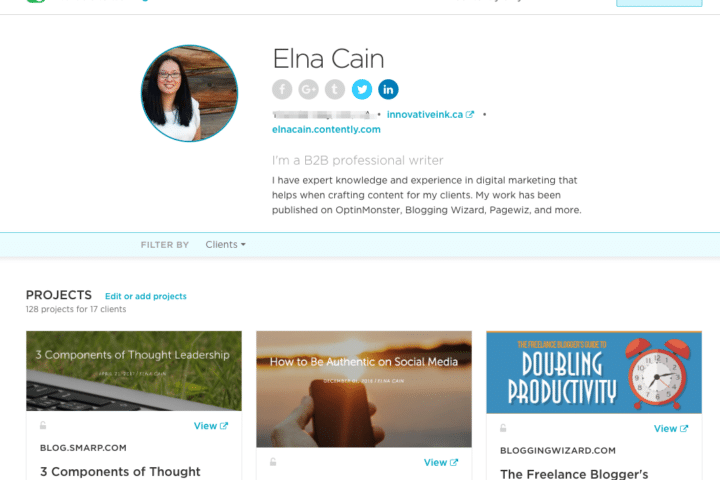Are your writing freelance writing pitches getting ignored?
You know you are the right person for the writing job, but your never hear back from the businesses you pitched to!
How do you get your freelance pitch to translate into a profitable writing job?

Writing pitches and applying for new freelance writing jobs takes a lot of time, so it is important that your pitches translate into paychecks.
You want every – or almost every – freelance writing pitch to convert into writing work.
Personally, I have about a 75% converting rate for all my pitches and these freelance pitch templates are shown in my writing course.
If you’re struggling sending out pitch after pitch and hearing nothing, it’s time to audit your pitch emails.
Here are my top tips to increasing your chances of getting your freelance writing pitches read and the common mistakes you might be making.
Your Freelance Writing Pitch

1. Learn the Business First
One of the first things you need to do if you apply to a freelance writing job from a job board is to find that company or blog on LinkedIn and check them out.
See their website, look at how many people they have on board and if they have a blog.
Also check out their social media profiles.
All of this information can help you customize and tailor your writing pitch to that business owner.
If you see that their blog posts are highly conversational and written for the gen Z crowd then you can probably get away with some witty and slang in your pitch.
However, if you find that their blog and social media posts are geared for the B2B crowd and more informational, then the tone of your writing pitch should mirror that.
2. Read the Job Board Pitch
Chances are, the first freelance writing job you will get will be from a job board.
So, make sure you actually read the job ad.
It will tell you exactly the type of writing job they seek and if you need to include something in your writing pitch like your freelance writing rate or writing samples.
3. Your Email Subject Matters

Your writing pitch is competing among several other emails.
If you’re replying to a job board offer, then there is a good chance that your email is one of 200-300.
Can you imagine how overwhelming that is for the client?
Think about what will make your email subject stand out. You don’t want to be obnoxious and use all capital letters, but you do want to get your email read.
If I am applying for a job board, I usually will have my email subject line as, “Expert B2B Writer Featured in Infusion Soft, Entrepreneur and More.”
This has helped me get an answer from many popular listings.
I think two things stand out to the client.
One, the email header reads like an article header with the right words capitalized.
Second, if all my competition has headlines like, “job application for…” or “interested in writing job…” then my email looks more promising than theirs.
Why?
Because I show the benefit that I have that others don’t – credibility.
For cold pitching to potential clients and publications, you still want to grab their attention with a good email subject line.
However, you need to realize that the person is probably getting many requests from PR individuals too, which are likely to go straight to the trash.
I try to avoid making my email sound like another PR email.
I usually use a header like, “Writing for X Company,” or “Freelance Pitch: How to Optimize Your Landing Pages for Search.”

4. Short and Sweet
People are busy and don’t have more than a few minutes to devote to an email from an unknown sender.
Don’t make them regret opening your email with a long string of sentences.
Personally, I receive many emails from marketers that want to guest post on this blog or want to help me grow my traffic.
These emails though are over 500 words long. This is too long and I never read them.
Get straight to the point by answering these key questions from the potential client’s perspective:
- Why me?
- Who are you?
- What is your experience?
- Where can I find out more?
- Why do I need you?
I have written pitches that answer the “Why do I need you?” part, but have also had success leaving it off.
I like to have the defined answer so that I am more confident when I pitch, and I also have a concrete answer if the client responds, “What do you think you can help us with?”
5. Link to Your Profile or Work
It is best to link to a portfolio that is easy to view and access.
I love Contently for their free portfolio service.

If I am emailing, I link the text in the body and also include it at the end.
If you have a new portfolio – under a year old – this can work too.
The lack of a portfolio or site usually doesn’t hinder from getting work.
6. Personalize Each Freelance Writing Pitch
Don’t rely on copy and paste to get you work.
Instead, find the first name of the person you are emailing.
I like to start with a “Good morning, Julia,” or “Good afternoon, Robert,” when possible. Addressing people as sirs/madams or by their full name is archaic.
I also like to include a small tidbit about how I found them.
If I found them on LinkedIn, I will also request to connect. It’s just an added step to make sure you are on that person’s mind without crossing the annoying line.
It’s okay if some parts of your writing pitch is a template. I often use the same template for each of my freelance pitches because that template is highly converting for me!
7. Don’t Share Too Much
While it’s okay to personalize your pitches, when you start “selling yourself” don’t share all your writing jobs or your introduction to freelance writing.
Your pitch is short and sweet and that means only sharing what is important for the client – your samples and credibility in your writing niche.
So, if you want to share a really nice testimonial from a previous gig in your pitch email as a way to convince a prospect, don’t! It’s not necessary or needed!
Generally, make your email no more than 300-400 words.
8. Remove Seeds of Doubt
Is your freelance writing pitch strong and confident words?
Do you truly believe you are the best for the job?
Never say that you are a new writer or that you are looking to break into a certain field.
Don’t say things like, “I hope to talk to you more,” or “I think I’m the best fit for the job.”
Make every sentence a confident one. You aren’t going for prideful or egotistical, but you want the potential client to feel confident in hiring you, not like they are about to take a risk.
I made these mistakes in my first freelance writing pitch.
9. Avoid Making Your Writing Pitch About You

One of the biggest mistakes new freelance writers make is to make a writing pitch all about them – what services they offer, how great their organizational skills are, how time management is something they take seriously, etc…
I’m here to tell you that this is not the way to score a writing job.
Businesses only want to know one thing from you – How can you solve their problem?
And it doesn’t even have to be a problem they are aware about.
Many small businesses lack time updating their blog.
Or, they may not even have a blog. Whatever the case may be, it’s your job as a freelance writer to figure out how they can hire you and the easiest way to show them this, is to solve a problem of theirs.
So, in your email, don’t focus on you.
Instead, focus on them. Explain in your pitch what you can offer to solve their problem, and if they like what they read, they will contact you.
For more freelance writing pitch mistakes, make sure to see the full guide here.
10. Keep Pitching
Don’t get hung up on a freelance writing pitch.
Sometimes you will not hear back from a potential client for several weeks – or even months.
You need to keep moving and not grow too attached to a potential client, job listing, or article idea.
Pitching is a numbers game, so keep working at it.
Yes, I have written and worked for probably hundreds of clients, but do you know how many “nos” or no answers I’ve gotten in the past five years? The number has to be in the hundreds!
Remember you are a hustler and for new writers this is the hat you will be wearing for a while.
It’s only when you have a list of clients and brands are hitting you up for writing gigs that you can take off your hustling hat and enjoy your writing business!
11. Keep Track of Your Writing Pitches
I like to keep track of who I pitch and what I pitch.
I use a pitching tracker in my freelance writing planner.
This helps me see which places are more converting.
It also helps keep my motivation up and I can create goals around how many pitches I send each week.
Get Work With Your Freelance Writing Pitch
If you find that your freelance writing pitch still isn’t working for you, then it is time to change things up.
It doesn’t hurt to mix up some of the sentences, cut out unnecessary items, or promote different related work links.
Don’t grow discouraged, instead get determined about landing the online writing job you want.
Over to you – how converting is your freelance writing pitch? What do you feel you need to work on with your pitch email?
Share in the comments!
Remember to pin me!




4 Comments